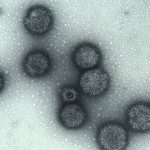Lien vers Pubmed [PMID] – 23094866
Lien vers HAL – inrae-02644940
Lien DOI – 10.1021/pr300507j
Journal of Proteome Research, 2012, 11 (12), pp.5695 - 5703. ⟨10.1021/pr300507j⟩
Phosphopeptide identification is still a challenging task because fragmentation spectra obtained by mass spectrometry do not necessarily contain sufficient fragment ions to establish with certainty the underlying amino acid sequence and the precise phosphosite. To improve upon this, it has been suggested to acquire pairs of spectra from every phosphorylated precursor ion using different fragmentation modes, for example CID, ETD, I:: and/or HCD. The development of automated tools for the interpretation of these paired spectra has however, until now, lagged behind. Using phosphopeptide samples analyzed by an LTQ-Orbitrap instrument, we here assess an approach in which, on each selected precursor, a pair of CID spectra, with or without multistage activation (MSA or MS2, respectively), are acquired in the linear ion trap. We applied this approach on phosphopeptide samples of variable proteomic complexity obtained from Arabidopsis thaliana. We present a straightforward computational approach to reconcile sequence and phosphosite identifications provided by the database search engine Mascot on the spectrum pairs, using two simple filtering rules, at the amino acid sequence and phosphosite localization levels. If multiple sequences and/or phosphosites are likely, they are reported in the consensus sequence. Using our program FragMixer, we could assess that on samples of moderate complexity, it was worth combining the two fragmentation schemes on every precursor ion to help efficiently identify amino acid sequences and precisely localize phosphosites. FragMixer can be flexibly configured, independently of the Mascot search parameters, and can be applied to various spectrum pairs, such as MSA/ETD and ETD/HCD, to automatically compare and combine the information provided by these more differing fragmentation modes. The software is openly accessible and can be downloaded from our Web site at http://proteomics.fr/FragMixer.



